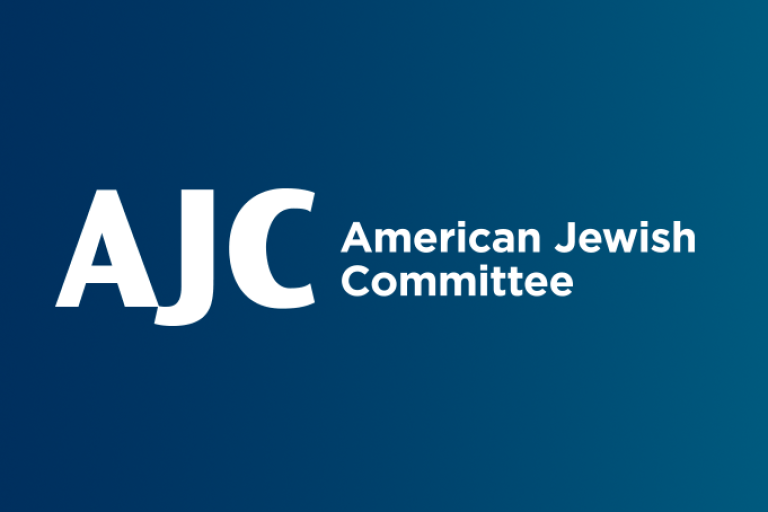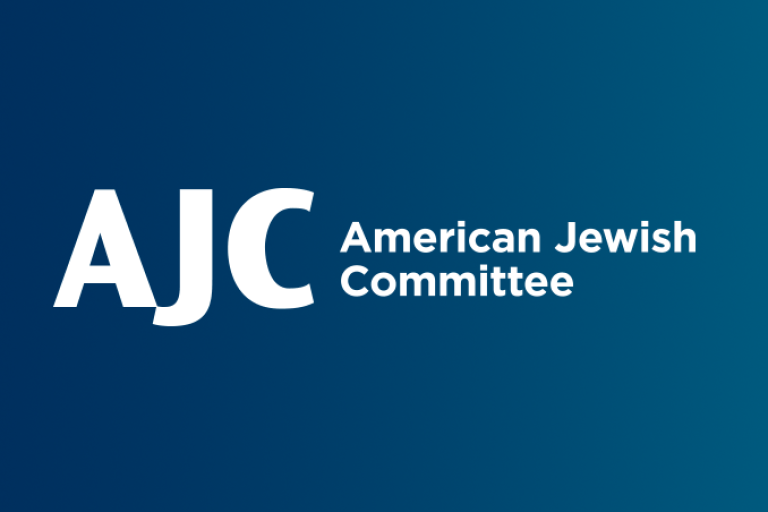May 7, 2024 — Vienna, Austria
As antisemitic intimidation, harassment, and violence rise on university campuses in the U.S. and Europe, American Jewish Committee (AJC) joined European and American Jewish community leaders and government officials for the third annual European Conference on Antisemitism, to assess the threat to Jewish students and civic order, and urge comprehensive action by campus administrators.
In an opening panel discussion entitled, “Antisemitism as the ‘new normal?’ Addressing rising antisemitism effectively at universities and on social media,” AJC Chief Policy and Political Affairs Officer Jason Isaacson spoke of universities’ obligation to enforce campus codes of conduct, review curricular materials and teaching methods to assure an accurate representation of the Israeli-Palestinian conflict and the Jewish people’s historic connection to their native land, and provide course offerings and other activities that celebrate Jewish heritage.
Isaacson praised the U.S. government’s increased attention to the fight against antisemitism, noting last year’s publication by the White House of the National Strategy to Counter Antisemitism and last week’s U.S. House of Representatives adoption, by an overwhelming bipartisan majority, of the Antisemitism Awareness Act. He pointed out the U.S. Department of Education's efforts to coordinate action against antisemitism in academia, and the adoption by state and local governments of the International Holocaust Remembrance Alliance’s Working Definition of Antisemitism.
Joining Isaacson in the panel discussion were Amb. Deborah Lipstadt, U.S. Special Envoy to Monitor and Combat Antisemitism; Katharina von Schnurbein, EU Coordinator on Combating Antisemitism and Fostering Jewish Life; President Ariel Muzicant of the European Jewish Congress; Ken Weinstein, President Emeritus of the Hudson Institute; and Edel Malowicki, of the Austrian Integration Fund.
AJC Director of International Jewish Affairs Rabbi Andrew Baker, who also serves as Personal Representative of the OSCE Chair-in-Office on Combating Anti-Semitism, addressed the conference on Monday afternoon, noting, “We have been forced to acknowledge that today we face a level of antisemitism here in Europe and in America that we have not seen since the OSCE first took up the challenge,” Baker went on to explain that “we have also placed our hopes in a younger generation, firm in our belief that education is the key to reducing prejudice and discrimination and promoting tolerance. Thus, it is particularly dispiriting that the current problems with antisemitism seem most acute on university campuses and among young adults.”
But with this lamentation, Baker also offered ways in which officials in the U.S. and Europe can take action to combat this rise in antisemitism, calling for leaders to loudly and swiftly condemn antisemitic incidents whenever and wherever they occur, to recognize and address the security needs of Jewish communities, to collect data on hate crime incidents to identify where and when they happen, to promote education about Jews that explores contributions to national heritage and culture and does not only focus on the Holocaust antisemitism, to promote interfaith dialogue, and to employ tools like the IHRA definition to better recognize antisemitism in all of its forms.
Isaacson and Baker were also joined by Dr. Remko Leemhuis, Director of AJC Berlin, who represented AJC Europe at the conference.
AJC is the global advocacy organization for the Jewish people. With headquarters in New York, 25 regional offices across the United States, 15 overseas posts, as well as partnerships with 38 Jewish community organizations worldwide, AJC’s mission is to enhance the well-being of the Jewish people and Israel and to advance human rights and democratic values in the United States and around the world. For more, please visit www.ajc.org
###


